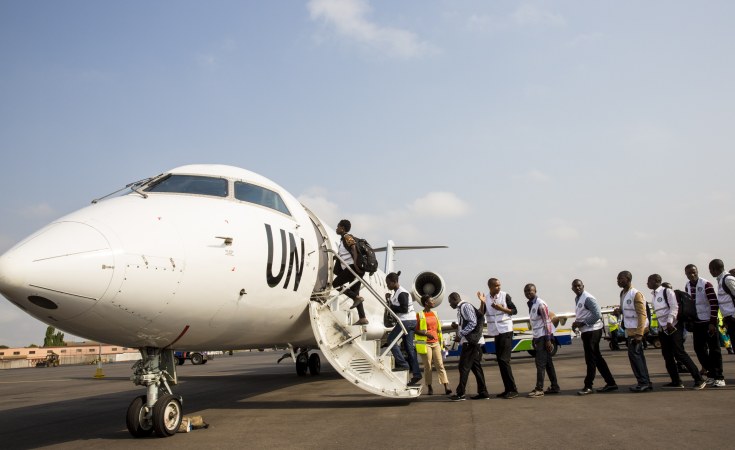Dakar — As the Ebola epidemic continues to wage thousands of deaths across West Africa and clinical trials are underway, a consortium of local West African leaders with scientific expertise are meeting in Dakar, on November 21 and 22nd, to assess the current state of Ebola treatment efforts and provide clear recommendations on ways forward, particularly for the three most affected countries of Guinea, Liberia and Sierra Leone.
"Many citizens are concerned that we are not hearing enough from our own doctors in this region. Today we have the opportunity to mobilize West Africa's medical community and help them take leadership in the fight against Ebola," explains Ibrahima Amadou Niang, the Guinea office manager at the Open Society Initiative for West Africa (OSIWA). "Human lives are the major stake in these Ebola trials, and the management of communities' expectations is vital."
The importance of getting local actors involved is paramount, and the two-day forum, launched by OSIWA, will gather some 25 local medical professionals from across the region. The first day will focus on the current status of the epidemic and recent trends, including standards of care and community engagement, and provide an overview of several experimental treatments and vaccines currently underway. Day two will review how to ensure local clinicians and researchers involvement in trials, including building capacity and strengthening infrastructure.
There will also be discussions on data transparency, ethics and facilitating community engagement.
"The lessons learned from recent outbreaks have placed great emphasis on the importance of infectious disease surveillance and control, the need for improved national and international preparedness and for continued research to identify better treatment regimens and vaccines," says Professor Souleymane Mboup, from the virology and bacteria laboratory at Cheikh Anta Diop University in Dakar, Senegal.
While Ebola cases may be declining in Liberia, in Guinea and Sierra Leone it persists at a relentless rate.
"A communication strategy will be developed to get the buy-in, from vulnerable affected communities, on the clinical trials," says OSIWA's Niang. "But most importantly, a joint strategy and action plan will be designed that will create a core regional advocacy group to represent a regional voice in international discussions and influence future health policy formulation in West Africa."
With just over 5,100 Ebola deaths reported so far by the World Health Organization (WHO) - mostly in the three most affected countries - and four new cases reported in nearby Mali, the current outbreak is the worst on record. The WHO warns there could be 10,000 new cases per week in West Africa by December if the situation does not get under control.
You can also follow the event on Twitter: #AfricaFightEbola
The Open Society Initiative for West Africa (OSIWA) is a part of the Open Society Foundations global network and one of four foundations in Africa. OSIWA is dedicated to the promotion of inclusive democratic governance, transparent and accountable institutions, equitably distributed gains from natural resource exploitation, and active citizenship across the region.


